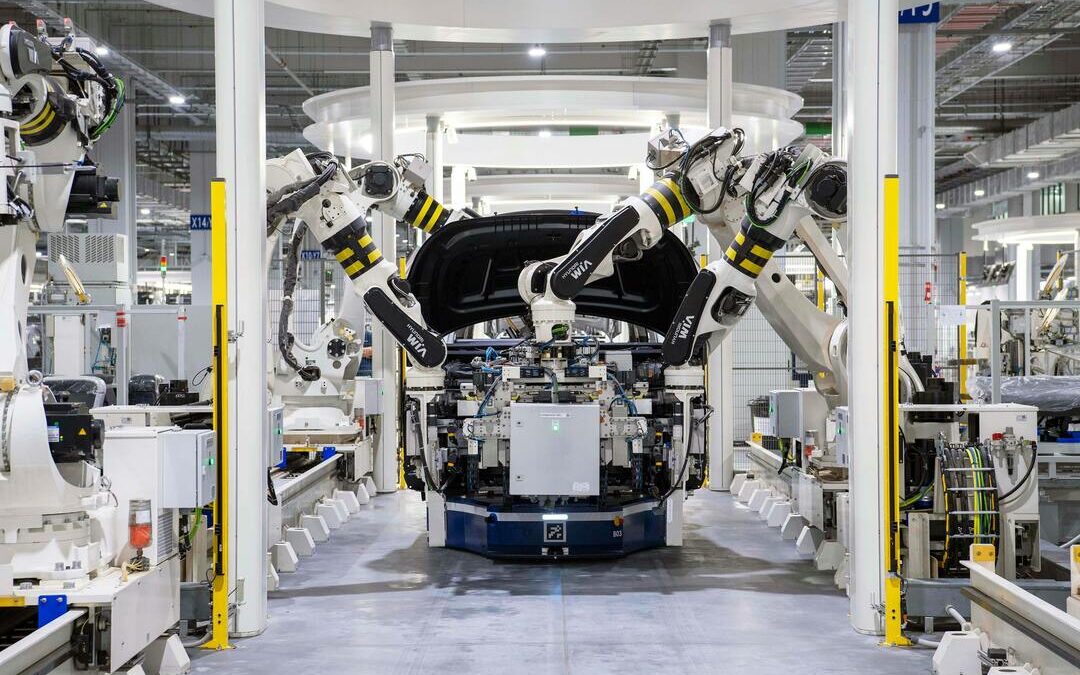MHI Expands Green Mobility Push with PM E-DRIVE Scheme, PLI Incentives
India boosts EV adoption with PM E-DRIVE, PLI incentives, and smart manufacturing under SAMARTH Udyog Bharat 4.0.
India is ramping up efforts to boost electric vehicle adoption and manufacturing with the implementation of the PM Electric Drive Revolution in Innovative Vehicle Enhancement, or PM E-DRIVE Scheme, the government said on Tuesday.
The scheme, notified by the Ministry of Heavy Industries in September 2024, has a budgetary outlay of ₹10,900 crore ($1.31 billion) over two years, aiming to strengthen the EV ecosystem by incentivizing buyers and supporting public charging infrastructure.
As of February 2025, ₹423.23 crore had been disbursed under the scheme, with ₹422 crore allocated for subsidies on electric two-wheelers and three-wheelers.
The incentives are passed on to consumers through upfront discounts on EV purchases, which are later reimbursed to original equipment manufacturers, the ministry said.
“No grants have been disbursed for e-buses to public transport bodies under the scheme so far,” the government said in a statement.
Additionally, ₹2,000 crore have been earmarked for public charging infrastructure, including e-buses and other EVs, to accelerate the expansion of charging networks across the country.
As of Dec. 2024, 25,202 EV charging stations had been installed nationwide, according to the Ministry of Power.
The government has also introduced fresh guidelines for setting up EV charging stations, simplifying regulations and encouraging public-private partnerships.
The installation of EV charging infrastructure has been designated as a “de-licensed activity,” easing entry for businesses.
PLI Incentives for Auto Industry
Under the broader push for manufacturing localization, India has also disbursed ₹322.01 crore in incentives to four applicants under the Production Linked Incentive Scheme for the automobile and auto components industry.
The scheme, with an outlay of ₹25,938 crore, aims to boost domestic production of advanced automotive technology products.
As of December 2024, cumulative determined sales under the PLI-Auto scheme stood at 15,230 crore rupees. However, fast chargers for e-buses and other EVs do not qualify as AAT products under the program.
SAMARTH Udyog Bharat 4.0
To modernize manufacturing, the government has also expanded the Smart Advanced Manufacturing and Rapid Transformation Hub initiative.
Four centers have been set up under the “Enhancement of Competitiveness in the Indian Capital Goods Sector” scheme to accelerate Industry 4.0 adoption.
In Gujarat, the initiative has provided advanced smart machines to four micro, small, and medium enterprises and conducted digital maturity assessments for others.
An “iFactory” training and demonstration hub was also established in Ahmedabad under a hub-and-spoke model.
Karnataka has also seen increased collaboration between start-ups and SAMARTH Udyog Centres, with digital maturity assessments conducted for three firms and multiple Industry 4.0 solutions developed.
The government’s continued push for electric mobility, manufacturing incentives, and smart industrialization aligns with its broader goals of reducing carbon emissions and enhancing domestic production capabilities.
Also Read:
Govt Approves $1.29B PM Electric Drive Scheme To Push Clean Transportation

